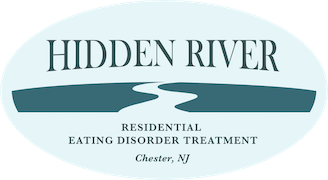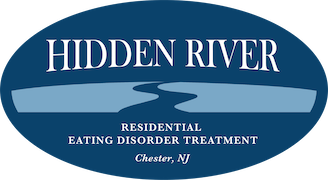Eating Disorders Are Not a Choice
Those who aren’t familiar with eating disorders may, with the prevalence of myths and false portrayals of this condition in the media, believe that those who suffer from them are simply choosing to struggle. This belief is a harmful narrative, one that places blame on the individual rather than incorporating an understanding that eating disorders are medical and mental health conditions that develop from several risk factors and can have severe consequences.
It’s important for society to see that these conditions are not a choice. They aren’t a type of lifestyle that someone picks for themselves. Similarly, people can’t simply choose to be cured of an eating disorder. Eating disorders are a serious illness, and they require professional treatment for recovery.
Eating disorders have numerous potential origins, and many people have multiple risk factors that may lead to the development of an eating disorder.
Some of these risk factors are biological. A 2019 study found that altered signaling between the bacteria in the gut and one of the brain’s systems responsible for regulating feeding behavior may show a pathophysiological model for eating disorders like anorexia nervosa or bulimia nervosa (1). Genes are also thought to be the origins of certain risk factors.
Besides biological mechanisms for the development of eating disorders, there are many emotional or cognitive risk factors. A 2018 study showed a connection between self-objectification and disordered eating, with those who reported a greater tendency to engage in self-objectification having a greater frequency of disordered eating (2). Self-esteem is also shown to have a connection to the development of eating disorders, with a 2018 study demonstrating a positive relationship between low self-esteem and the development of an eating disorder (3).
If you go through the research literature, you’ll find hundreds of recent academic papers exploring the origins of eating disorders. What they’ll all agree on is that they are serious conditions that require both medical and mental health treatment, no matter how they developed.
Eating disorders need to be taken seriously and treated as soon as possible.
They are an incredibly lethal mental health condition — perhaps one of the most lethal of all the mental health conditions. Because the symptomatology includes a physical component, co-existing medical conditions and the deterioration of physical health often occurs. According to the American Psychiatric Association (4), physical symptoms of eating disorders due to low body weight or disrupted eating behaviors can include:
- Dizziness or fainting caused by dehydration
- Cessation of menstruation
- Brittle hair and nails
- Inability to regulate body temperature
- Constipation or bloating
- Stress fractures from weaken bones
Besides the physical impacts of these conditions, they may lead to emotional distress or harmful behaviors. One symptom is self-harm, which can be a highly dangerous behavior that may even result in death.
Because of the severity of eating disorders, getting effective treatment from professionals is of utmost importance for recovery.
A professional treatment team may include doctors, nurses, dieticians, and mental health clinicians like psychologists or social workers. Hidden River offers comprehensive therapy programs for those with eating disorders, including a residential program where patients can reside on our beautiful estate while working closely with their treatment team.
The clinicians at Hidden River understand that eating disorders aren’t something that their clients choose. They also know that these conditions require special care for recovery, which is why they’ve created a unique therapy program for their clients’ treatment journey.
For more information about eating disorder treatment at Hidden River, please visit our website.
References
- Fetissov, S.O. & Tomas Hökfelt, T. (2019). On the origin of eating disorders: altered signaling between gut microbiota, adaptive immunity and the brain melanocortin system regulating feeding behavior. Current Opinion in Pharmacology, 48, 82-91.
- Schaefer, L.M. & Thompson, J.K. (2018). Self-objectification and disordered eating: A meta-analysis. International Journal of Eating Disorders, 51(6), 483-502.
- Colmsee, I.O, Hank, P., & Bošnjak, M. (2021). Low Self-Esteem as a Risk Factor for Eating Disorders. Hotspots in Psychology, 229(1), 48-69.
- “What are Eating Disorders?” (n.d.) American Psychiatric Association. Accessed November 9, 2023 on https://www.psychiatry.org/patients-families/eating-disorders/what-are-eating-disorders






Leave a Reply
You must be logged in to post a comment.